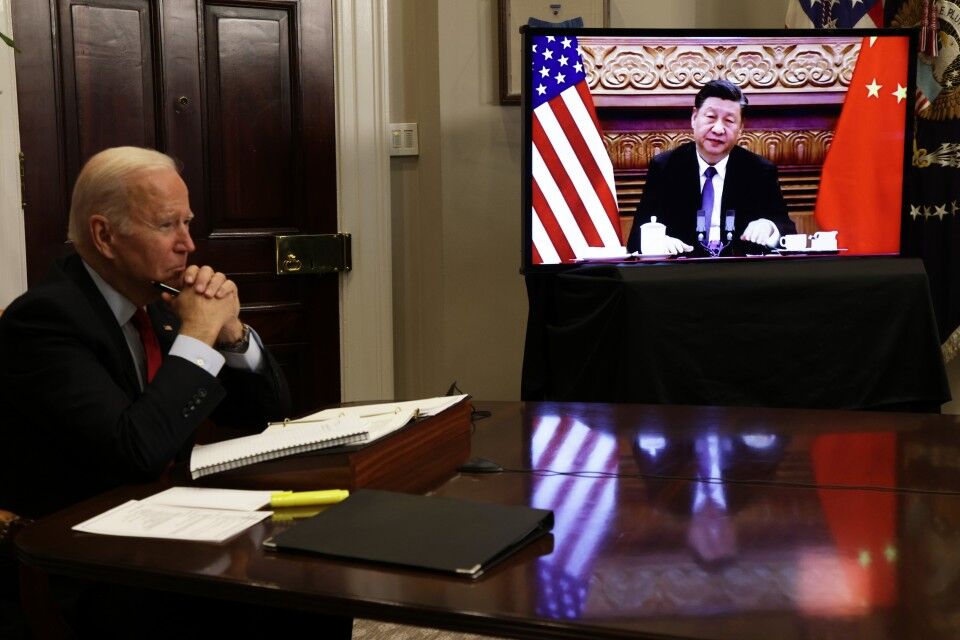Having referred to the remarks made by the Spokesman of the U.S. Department of State on Washington’s adherence to the policy of the United China and does not support the Taiwanese independence, Hassan Beheshti Pour in an interview with the site of Strategic Council on Foreign Relations spelled out:” earlier, the same had already been raised by the U.S. Secretary of Defense. By repeating such a position, it seems that Washington wishes to remind the Chinese authorities that it does not wish to enter into a clash with China under these circumstances, also to take a stance that drives the country towards Russia. In fact, the U.S. is not willing to instigate China and thus to make it approach to Russia”.
U.S. Concern about China’s Approach to Russia
Having reminded that China continues to increase its authority at various scenes, and the U.S. has spared no effort to contain the process, he referred to Washington’s concern about the Chinese approach to Russia and its practical support extended to the country. He added:” that’s the reason why strengthening its relations with India, ASEAN, Vietnam, Australia, Japan and South Korea has gained importance for the U.S. Having responded to these efforts, China has turned to ink security agreements with Micronesian countries of Pacific Ocean”.
He also elaborated some remarks made by the U.S. political and military officials who had earlier said that China tried to seize the opportunity of Russian invasion of Ukraine and to seize Taiwan through a military assault and or in case of Russian victory, to follow the same pattern and said:” Ukraine was an independent state and Russia had recognized its independence. Ukraine was a UN member country even during the former Soviet Union; therefore, Ukraine is an entity which can not be denied by Russia”.
Having referred to the agreements in which Russia had recognized the international borders of Ukraine and also Moscow’s security guarantee given to Ukraine in 1994 to maintain its independence against decommissioning its nuclear arms and delivering them to Russia, Beheshti Pour emphasized:” in terms of international laws, Ukraine’s status is completely different from that of Taiwan. After the U.S. and the People’s Republic of China agreement on Taiwan in 1971, the permanent membership of the United Nations Security Council was awarded to China, and it was officially acceded to the UN. From the outset, and in all international documents, the People’s Republic of China considered Taiwan as one of its provinces that despite having a president and parliament, yet, Taiwan is not a UN member”.
Having reminded that except the U.S., most of countries have not officially recognized Taiwan, and have not established their diplomatic relations with it, he said:” China does not aim to attack Taiwan under this condition because unlike Russia, China does not feel any international threat against itself. Except during the Republic of China, there is not even a single document in which Taiwan had been recognized as an independent state”.
According to the expert of international issues, raising such positions by the U.S. is made only with political objectives and in line with exerting pressure on China. He referred to the U.S. policy to distance China from Russia under Ukraine war conditions, and continued:” China’s position to support Russia has been a political stance from the outset. As China cast an abstain vote in the United Nations General Assembly meeting; because China wants to have relations with both Russia and Ukraine. Through maintaining its political and economic relations with Russia, China did not engage itself with the whole world. Yet, the U.S. is not willing to see Beijing’s further approach to Moscow”.
Beheshti Pour pointed out to the visit made by Kissinger and Nixon to Beijing in 1972, the U.S. role in China’s membership in the UN and establishment of the United China that aimed at driving a wedge between the People’s Republic of China and the Soviet Union. He noted:” Although the U.S. continues to keep its relative presence in the Middle East and the Russia’s siege, but has focused its attention on Asia Pacific region, and now that it sees China as a menace and a serious competitor, it strengthens its position in the region and will further use Taiwan as a leverage against Beijing”.
The Policy of Puting Aside Taiwanese Independence is not the U.S. Macro
Strategy
Having referred to the U.S. support of opponents and criticizing groups who seek independence from China in Taiwan, the international analyst said:” generally speaking, one of the U.S. policies in all countries is to work both with governments and their opponents. The policy is practiced even with regards to its allies and does not put all its eggs in the government’s basket. We witness the practicing of the same policy with China’s competitors. But, it seems that at a junction when it faces with the crisis of war between Russia and Ukraine, the policy has temporarily been suspended. But, shelfing Taiwanese independence is not, for sure, the U.S. macro strategy, therefore, the U.S. stances on non-supporting Taiwanese independence is temporary”.
Having stated that Beijing does not believe in the U.S. Commitment to the United China, he pointed out to the measures that the U.S. had already taken to use Taiwan as a leverage against China such as allocation of military budget to support Taiwan, and added:” Definitely, China does not pay any attention to the declared policies alone, instead, it considers the U.S. applied policies within the past six decades”.
Beheshti Pour called China’s policy in its relations with Russia as stabilized and durable policy that will not change because of the U.S. policies. The policy of Russia and China is independent variable from their relations with the U.S. It seems that the present U.S. policy does not have any decisive effect on the future of Beijing and Moscow relations, because the two countries have defined strategic relations between them.










0 Comments